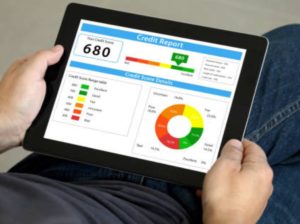Tips to obtain or fix your credit to buy a home
 It used to be that only people with the best credit would qualify on their own to buy a home. Today, there are plenty of options for people with less than desirable credit scores, below 700.
It used to be that only people with the best credit would qualify on their own to buy a home. Today, there are plenty of options for people with less than desirable credit scores, below 700.
If poor credit or a low score has been holding you back from applying for a home loan, these tips may be able to get you from a rental into a home of your own.
What’s in your credit report
Your credit score is a three-digit number, based on your credit history, that relates to how likely you are to repay debt. You credit history includes any loans and things like credit card debt, and whether you have paid on time. Often younger people or those that have never purchased anything on credit have little credit history.
However, you can build, and in many cases repair, your credit history.
Learn where you stand
 You are entitled to a free copy of your credit report every 12 months from each credit reporting company. The first thing you want to do is get your credit report and check it for errors. Mistakes and fraud do happen, such as a debt that is not yours, or an account that was paid off still showing up on your report.
You are entitled to a free copy of your credit report every 12 months from each credit reporting company. The first thing you want to do is get your credit report and check it for errors. Mistakes and fraud do happen, such as a debt that is not yours, or an account that was paid off still showing up on your report.
Also, make sure all of your information listed is up to date. Each credit bureau has a process to dispute errors on your credit report.
If your credit score is 600 or above, talk to a lender and ask their advice if you should go ahead and apply for a loan or try to improve your credit first. FHA loans, which help lower income borrowers, has a minimum score requirement of 580.
If you plan on purchasing a home in the future, it is important to raise a low credit score, not only to qualify for a loan, but also to obtain a better rate.
How to improve your credit score
 If you have not had any kind of credit before, you may want to consider applying for one credit card (called revolving credit on your credit report.) Be diligent about keeping purchases to a minimum, and pay off the balance every month. The easiest way to ensure on-time payments is to set up automatic payments from the start. If you are having trouble qualifying for your first credit card, you could start by being an authorized user on someone else’s account, such as a spouse or family member. Just make sure they have good credit before you attach yourself to their account.
If you have not had any kind of credit before, you may want to consider applying for one credit card (called revolving credit on your credit report.) Be diligent about keeping purchases to a minimum, and pay off the balance every month. The easiest way to ensure on-time payments is to set up automatic payments from the start. If you are having trouble qualifying for your first credit card, you could start by being an authorized user on someone else’s account, such as a spouse or family member. Just make sure they have good credit before you attach yourself to their account.
If you already have credit cards, make a plan to pay off outstanding balances, keep monthly purchases to a minimum, and keep them paid off going forward. Also, do not cancel any existing credit cards, unless the card has an annual fee and you are not using it. There is a calculation the credit bureaus use based on the total amount of credit you’ve been extended, and how much of that credit you use every month. The lower the better, but the number should be no more than 20% of your credit limits. For example, if you have a total of $10,000 in credit across all of your cards, you should charge no more than $2,000 per month.
You may also want to consider a small loan, such as a short-term vehicle loan. These smaller loans are easier to qualify for. However, if you are trying to purchase a home soon, before the auto loan is paid off, this could go against you as it increases your overall debt. The general rule of thumb is to not take out any new loans or make major purchases right before applying for a mortgage.
You can improve your credit score by reporting your rent to credit agencies. Some charge a fee, some may be paid by the property manager. You can check out a brief description of various services here. You can even get credit for reporting your timely utility and phone payments through Experian Boost.
Your credit score affects your mortgage interest rate
 In general terms, the lower your credit score, the higher the interest rate you will be quoted. It does pay to shop around and get loan quotes from more than one company. Even a half a point in interest could make a significant difference in your monthly payment and how much you will pay over the life of the loan.
In general terms, the lower your credit score, the higher the interest rate you will be quoted. It does pay to shop around and get loan quotes from more than one company. Even a half a point in interest could make a significant difference in your monthly payment and how much you will pay over the life of the loan.
Also, a low credit score may mean you have to come up with a higher down payment. You may be required to carry mortgage insurance, which will add to your monthly cost. Currently, the mortgage insurance premium on an FHA loan is 1.75% upfront, then 0.7 to 0.85% of the loan amount annually.
If you are ready to buy now and you are having trouble qualifying, two other options stated by Bruce McClary, spokesman for the National Foundation for Credit Counseling, are adding a co-signer to the loan or reducing the overall amount you plan to borrow.


